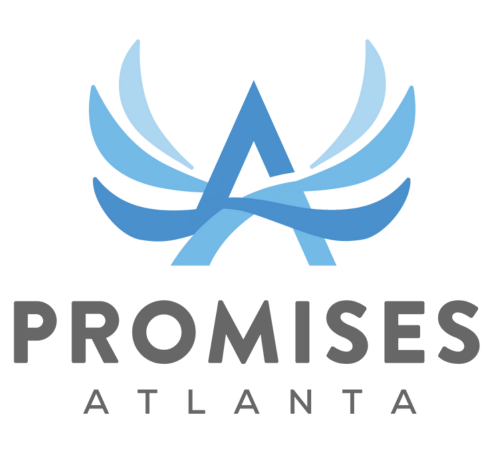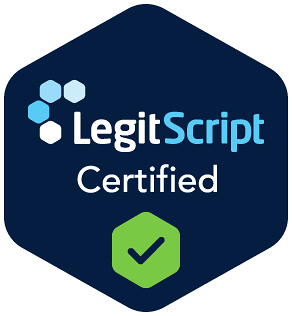Heroin is an incredibly potent drug that can quickly lead to dependence, making it extremely challenging to quit without support. What might begin as an attempt to relieve pain or escape stress can rapidly escalate into a far more serious and dangerous situation. At Promises Atlanta, we recognize the profound emotional and physical impact of heroin addiction. That’s why we offer compassionate, evidence-based heroin addiction treatment designed to heal the whole person—not just the addiction.
Understanding heroin addiction
The nature of heroin addiction
Heroin affects the brain’s reward system, creating feelings of extreme pleasure. But the body quickly builds a tolerance, meaning more of the drug is needed to feel the same effect. Over time, this leads to physical dependence and addiction. People may feel sick, anxious, or in pain without it, making quitting impossible.
Common causes of heroin addiction
Heroin addiction rarely begins with heroin itself. For many, it starts with prescription painkillers. When prescriptions are no longer available or become too costly, some individuals turn to heroin as a more affordable and potent alternative. Trauma, mental health conditions, and stress also play a major role. No matter how it starts, it’s important to remember: addiction is not a moral failure. It’s a treatable health condition.
Signs and symptoms of heroin addiction
Recognizing signs of heroin addiction can help a person get help sooner. Common signs include:
- Constant cravings for heroin
- Track marks or bruising on the arms
- Lying or hiding drug use
- Weight loss, fatigue, or frequent illnesses
- Isolation from friends and family
- Struggling with work, school, or responsibilities
If you or a loved one is experiencing these signs, exploring available treatment options is an important step toward recovery.
Heroin withdrawal symptoms
Quitting heroin is challenging because the body and brain go into withdrawal. These symptoms can be intense and uncomfortable, but they are manageable with the right care.
Physical withdrawal symptoms
- Nausea, vomiting, or stomach cramps
- Sweating and chills
- Muscle aches and shaking
- Runny nose and watery eyes
- Difficulty sleeping
Psychological withdrawal symptoms
- Anxiety or panic
- Depression
- Mood swings
- Restlessness
- Cravings for heroin
Duration of withdrawal symptoms
Heroin withdrawal often begins within six to 12 hours of the last dose. Physical symptoms usually peak around day two or three and start to ease by the end of the week. Psychological symptoms, like cravings or depression, may last longer, which is why ongoing support is so important throughout the heroin recovery timeline.
The heroin detox process
Getting through detox is the first major step toward recovery. It clears heroin from the body and prepares you for long-term healing.
What is heroin detox?
Heroin detox is the process of removing the drug from your system. It’s where the body starts to reset and begin healing. While it’s not always easy, it’s necessary to move forward.
Medical detox vs. at-home detox
Detoxing at home can be risky. Symptoms can be severe and dangerous without support. Medical detox happens in a safe setting with doctors and nurses who monitor your health and provide medications if needed. At Promises Atlanta, detox includes emotional support, comfort care, and guidance every step of the way.
Medications used in heroin detox
Certain medications can help ease heroin withdrawal symptoms, including:
- Buprenorphine: Eases cravings and withdrawal
- Methadone: Reduces symptoms and blocks heroin’s effects
- Clonidine: Helps with anxiety and physical discomfort
- Naltrexone: Used later to prevent relapse
Heroin rehab centers
Once detox is complete, rehab helps address the emotional, behavioral, and social sides of addiction.
Types of rehab centers
There are many kinds of heroin rehab centers, including:
- Residential treatment centers where you stay on-site
- Outpatient centers where you attend treatment during the day and return home at night
- Dual diagnosis centers that treat both addiction and mental health conditions
Inpatient vs. outpatient rehab
Inpatient rehab is best suited for individuals struggling with severe addiction or those needing a break from daily triggers. With 24/7 care and a structured environment, it provides comprehensive support for recovery. On the other hand, outpatient rehab offers greater flexibility, making it an ideal option for those balancing work, school, or a supportive home environment while seeking treatment.
Choosing the right rehab center
Look for a center that offers customized care, licensed professionals, and addiction and mental health support. Promises Atlanta provides trauma-informed, gender-responsive care designed to meet each person’s unique needs.
Heroin recovery timeline
Recovering from heroin addiction is a journey that takes time, but every step forward marks meaningful progress.
Early recovery stages
The first weeks involve withdrawal, therapy, and adjusting to a new routine. It’s common to feel emotional and physically tired, but hope begins to grow with support.
Long-term recovery milestones
- One month: Increased energy and improved mood
- Three months: Stronger coping skills and fewer cravings
- Six to 12 months: Stability in relationships, work, and emotional health
- Beyond: Many stay connected through therapy or support groups for years to maintain long-term recovery
Heroin addiction treatment options
Recovery is not a one-size-fits-all journey. The most effective approach blends tailored therapies, appropriate medications, and the strength of community support.
Behavioral therapies
Therapies like cognitive-behavioral therapy (CBT) and dialectical behavior therapy (DBT) help people understand their triggers, manage emotions, and build new habits.
Medication-assisted treatment (MAT)
MAT uses medications alongside counseling. It helps reduce cravings and prevent relapse. MAT is safe, effective, and widely recommended for heroin addiction treatment.
Support groups and counseling
Group therapy and programs like Narcotics Anonymous (NA) give people a sense of connection and accountability. Individual counseling also provides a safe space to work through personal struggles.
What to expect during heroin rehab
Gaining insight into the rehab process can help ease fears and foster a sense of empowerment.
Initial assessment and evaluation
Every person starts with a full assessment—medical history, substance use history, and emotional needs are all reviewed to create a tailored plan.
Customized treatment plans
Treatment is never a one-size-fits-all approach. Each plan is thoughtfully tailored to combine the ideal balance of therapy, medication, activities, and support, uniquely crafted to reflect each person's journey.
Daily life in rehab
Daily life in rehab includes:
- Therapy sessions (individual and group)
- Health and wellness activities
- Medication management
- Rest and nutritious meals
- Time for journaling, art, or meditation
Structure creates safety and space to focus fully on recovery.
Aftercare and ongoing support
Before leaving rehab, a full aftercare plan is created. This may include outpatient treatment, support groups, sober housing, or ongoing MAT. Recovery continues beyond treatment—and you’ll never have to do it alone.
You’re not alone—healing starts here
Heroin addiction may feel overwhelming, but recovery is always possible. Whether you’re reaching out for yourself or someone you love, the first step is just a conversation. At Promises Atlanta, our team is ready to walk with you through every stage of recovery—with heart, hope, and expert care. Call Promises Atlanta or reach out online today to learn more about our heroin addiction treatment options and take the first step toward healing.




